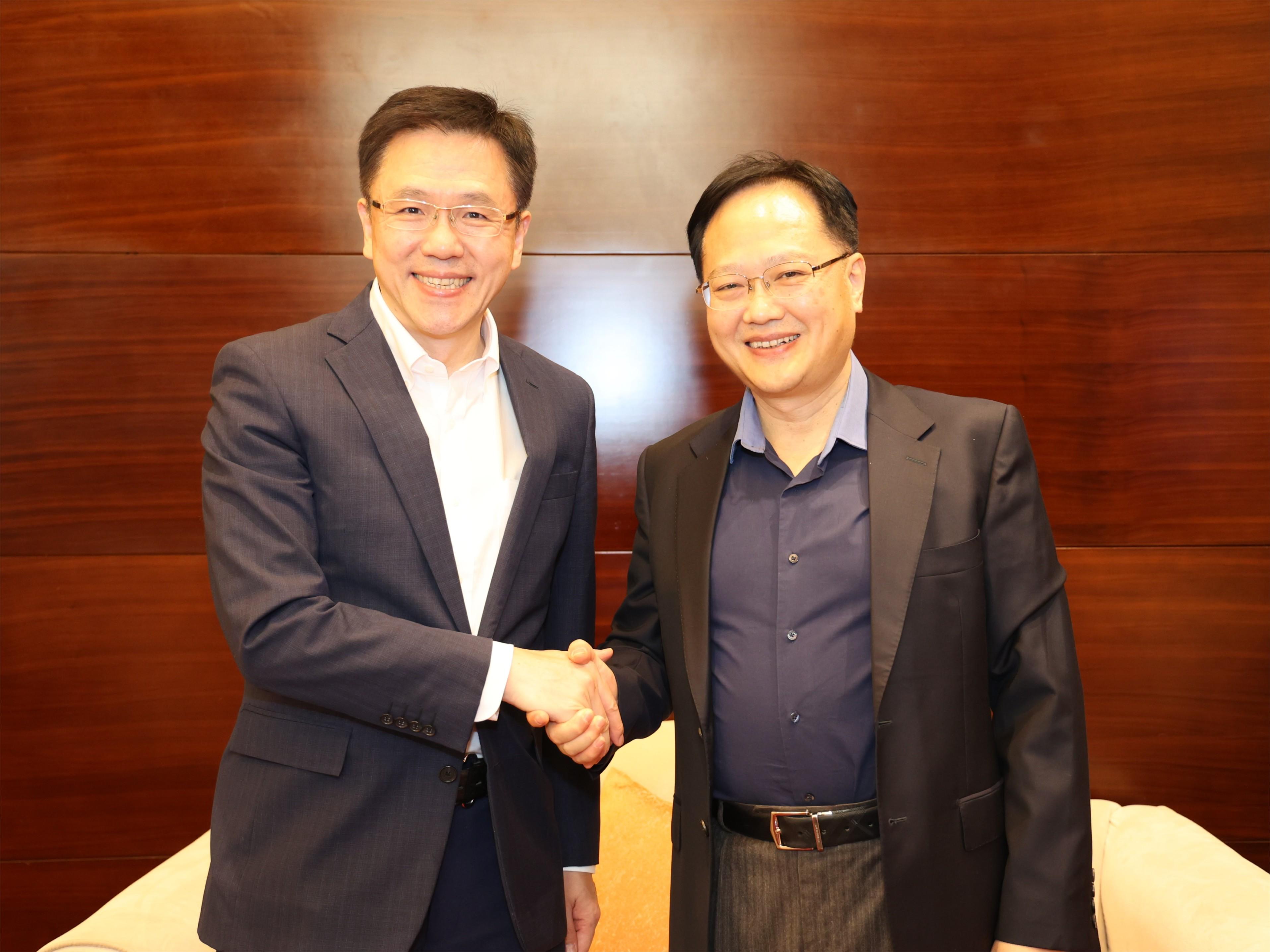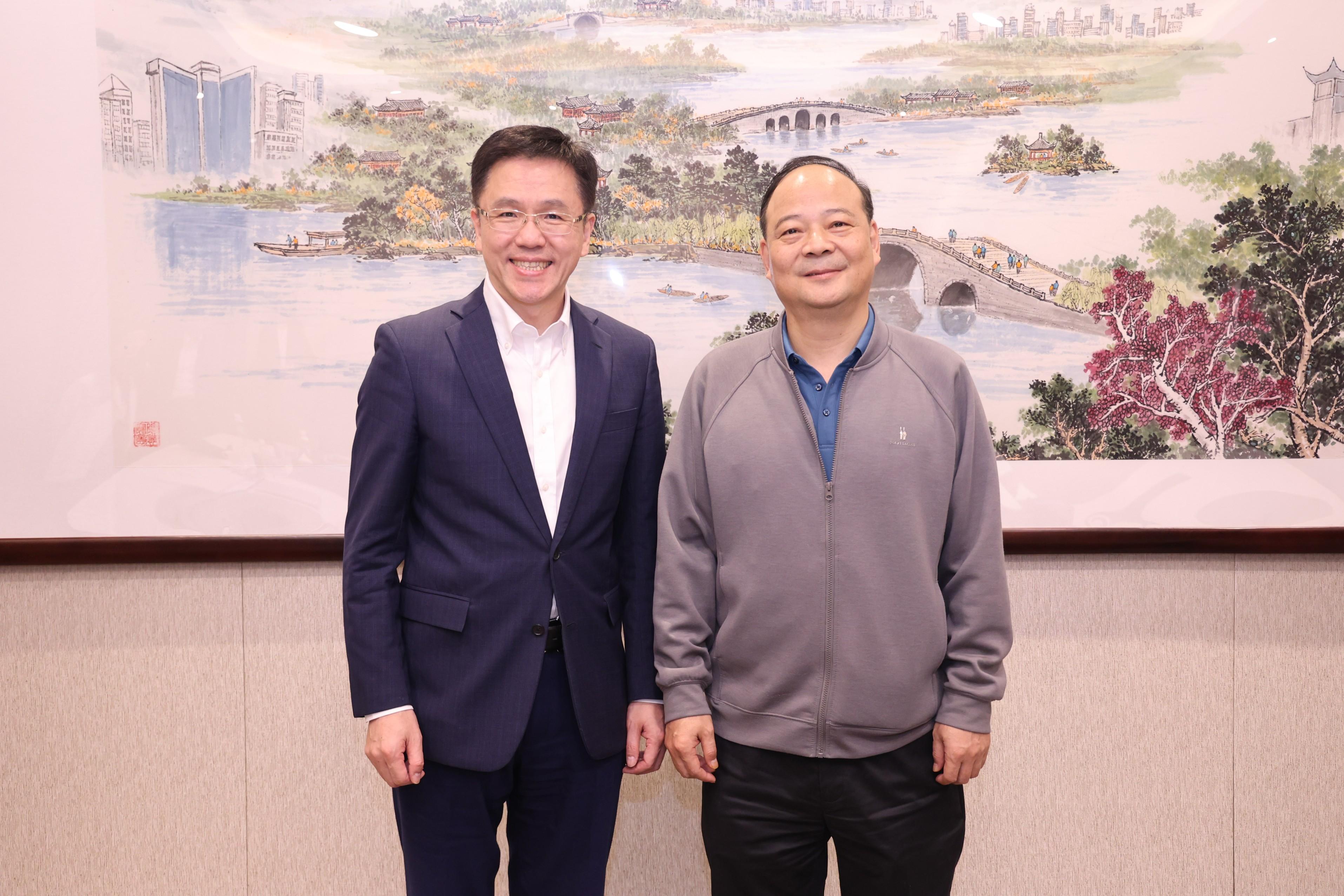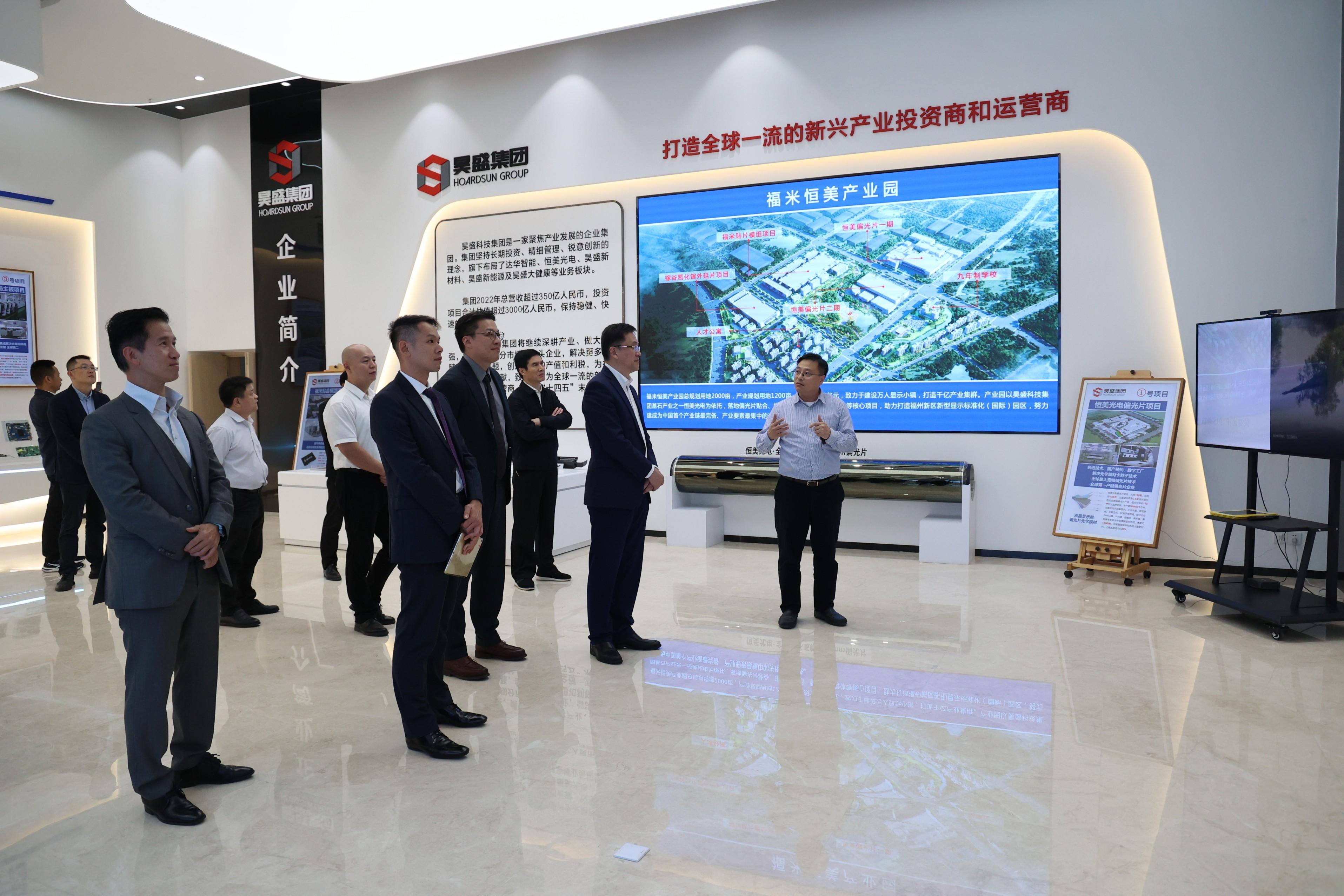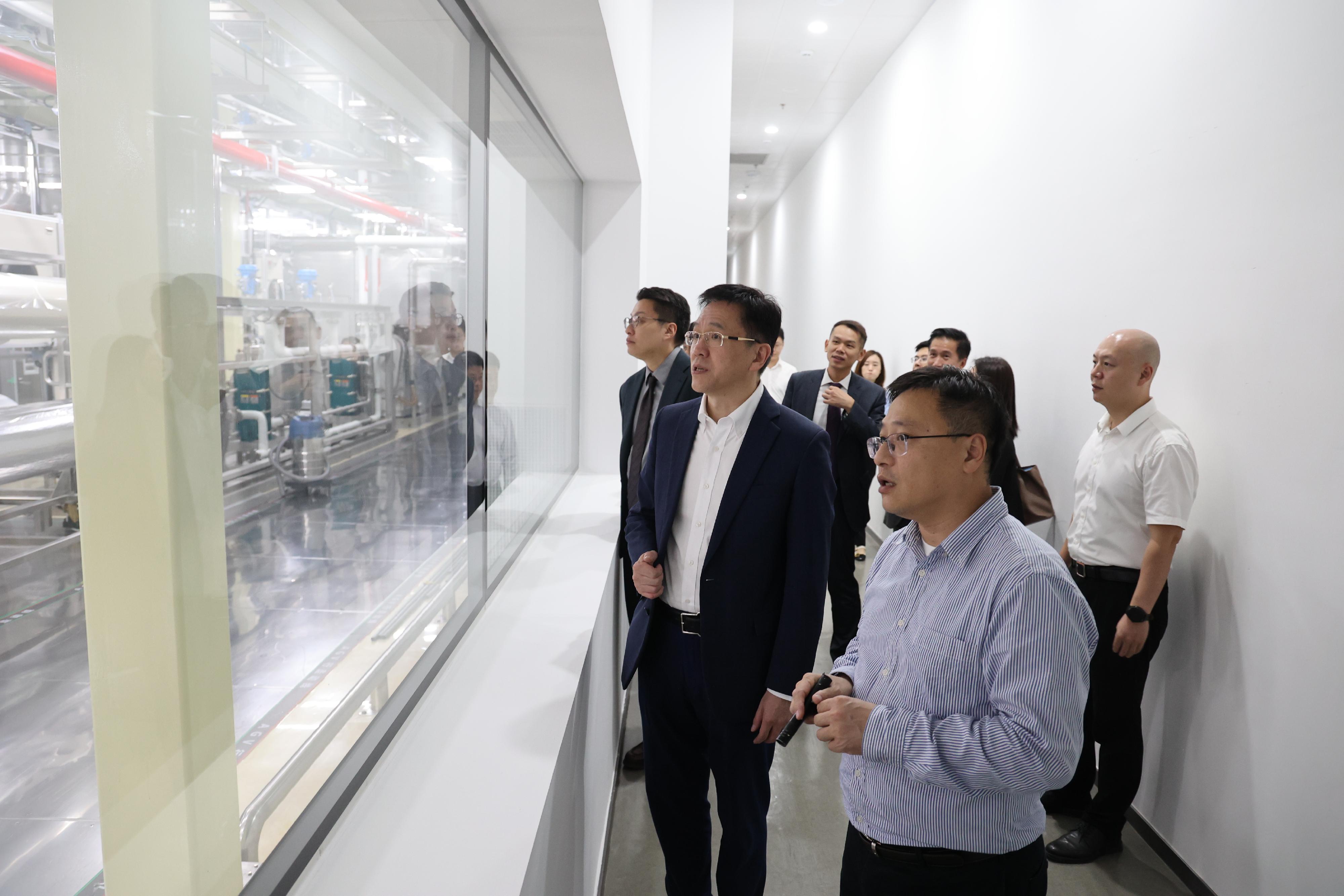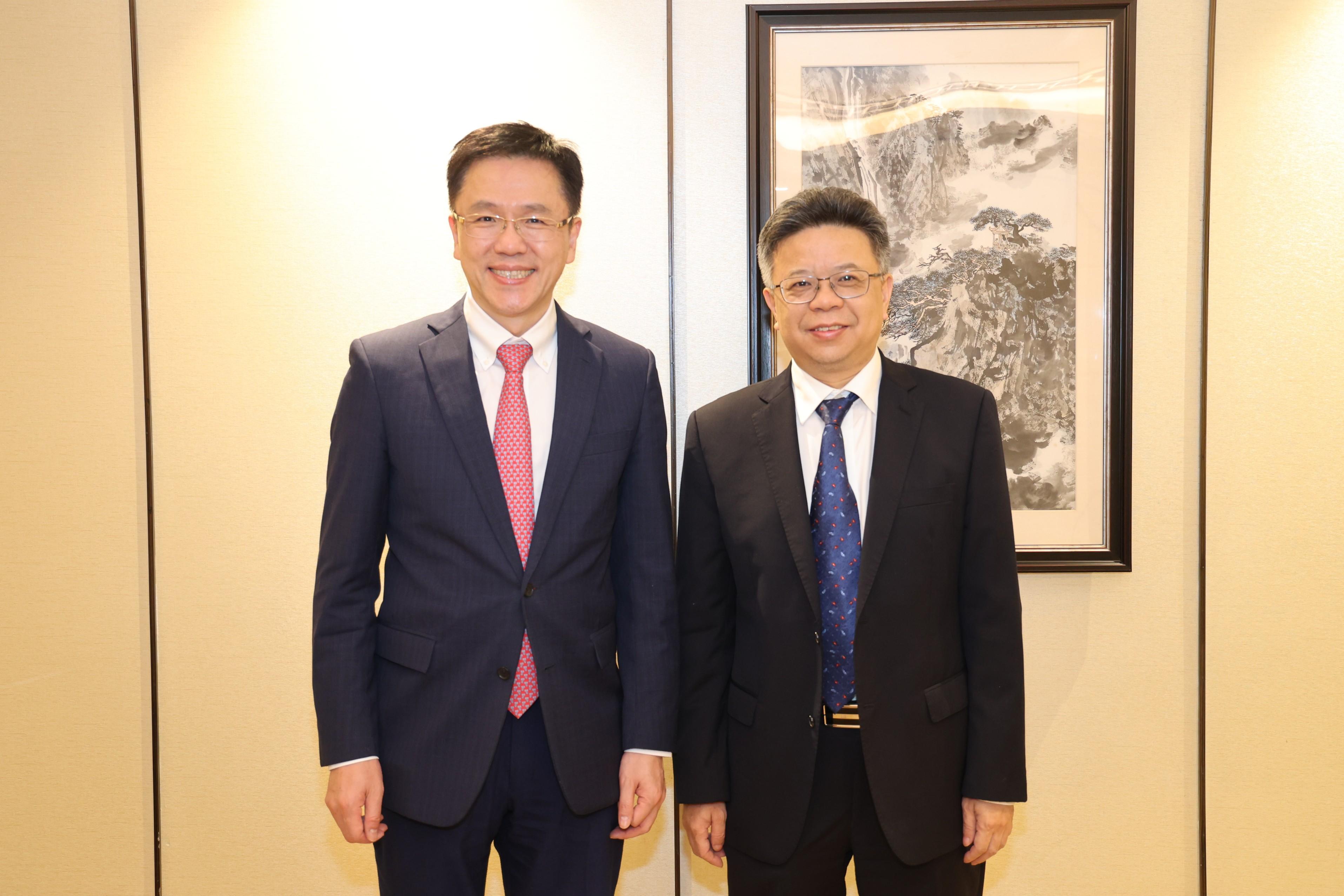Speech by FS at HKMA-BIS High-Level Conference (English only)
Following is the speech by the Financial Secretary, Mr Paul Chan, at HKMA-BIS High-Level Conference today (November 28):
Central Bank Governors, Dr Carstens (General Manager of the Bank for International Settlements (BIS), Dr Agustín Carstens), Eddie (Chief Executive of the Hong Kong Monetary Authority, Mr Eddie Yue), distinguished guests, ladies and gentlemen,
Opening
Good morning. A very warm welcome to you all to Hong Kong, Asia’s world city.
And as you are here, I trust you are able to see for yourselves that Hong Kong, after three years of pandemic, is quickly regaining its vigor and vitality. We remain a safe, open and globally connected metropolis. Not to mention its shining beauty under this perfect autumn weather – though for this time of this year, it used to be winter. Climate change is really something that we have to address urgently.
And this glamorous city continues to steadfastly uphold the “one country, two systems” principle. We hold the common law system and the rule of law dear to our heart. We treasure our international character that forms the fabric of the society and is the very foundation of our success.
As an IFC (international financial centre), Hong Kong enjoys a close working relationship with the BIS. We have had the privilege of hosting BIS Asian Office, alongside its Innovation Hub Hong Kong Centre since 1998. The history of Hong Kong’s collaboration with the BIS is a testament to our shared goal of fostering international co-operation and safeguarding the stability of the global financial system.
Central banking and financial regulation in Hong Kong
The quarter century history of the BIS Asian Office runs in parallel with a period of remarkable growth in the region. As we all know, it was not all smooth sail. The region has been through economic cycles, financial crises, pandemics, and, occasionally, social turbulences. From the Asian Financial crisis in the late 1990s, to the global financial crisis in 2008, and the market squeeze at the onset of the COVID pandemic. Despite all these, our economies and financial systems have continued to grow, in size and sophistication, demonstrating resilience and adaptability along the way.
Being Asia’s key financial centre and a small, open and externally-oriented economy, Hong Kong has been the epicentre of many of the trials and tribulations that Asia has experienced. Yet Hong Kong’s financial system has remained eminently safe and sound. Each time when we weathered a crisis, we emerged stronger and more resilient. The Linked Exchange Rate System is a good example. Having gained experience from a bumpy road, we introduced various measures and refinements back in 1998 and 2005 respectively, and have formed a robust regime of convertibility undertakings. Of course, it is backed by a substantial reserve in the Exchange Fund amounting to over US$400 billion, which is 1.7 times of our monetary base.
Let me reassure you that the Hong Kong SAR Government puts financial stability and security as one of our top priorities. Over the years, we have built up a robust regulatory framework and strong buffers. We ensure our rules are of high-quality and consistent with international standards, and we have remained vigilant against emerging risks. In particular, in light of daunting challenges and changing circumstances, we have established a high-level “cross-market, co-ordinated, and round-the-clock” monitoring mechanism over all sectors of the financial market, allowing us to detect if risks are looming.
Naturally, given Hong Kong’s role as the gateway to the Chinese Mainland and the global offshore renminbi centre, the Central Authorities have given us unreserved support and backing in both regulation and development. One example is the RMB 800 billion currency swap agreement with the PBoC (the People’s Bank of China) through which we enjoy ample additional RMB liquidity support. On a wider perspective, the expanding and deepening Connect Schemes with the Mainland, from products to derivatives, institutional investors to individual investors, are boosting the liquidity and ecosystem of Hong Kong’s financial markets.
The importance of cross-border collaboration in finance
Ladies and gentlemen, as we gather here today, let us remind ourselves of the critical importance of cross-border collaboration. The financial sector is a global marketplace where capital moves across borders at awe-inspiring speed and volume. Such international capital flows bring enormous benefits, including more funding for businesses, investment opportunities and economic growth. But they also expose economies to potential shocks and vulnerabilities. From the Asian financial crisis to the recent turmoil in relatively obscure corners of regional banks in the United States and global banks in Europe, it means that crises can readily ripple through the global financial system, only now with an even greater speed.
At all the episodes that I just mentioned, central banks and regulatory authorities had been swift to take co-ordinated policy actions to restore market confidence and stability. And once the pressure has eased, they also shared lessons learned and implemented globally-consistent measures to address the vulnerabilities that were exposed, working together to prevent the next crisis. To this, I wish to express my sincere appreciation.
But as we all know, finance is eminently adaptable. New and previously unimaginable risks emerge as the financial sector reacts to new regulations and develops new products and services, many of which, such as virtual asset, are borderless in nature. Governments and central banks must therefore continue to work together, share knowledge, intelligence and co-ordinate policies to ensure the stability and resilience of the global financial system.
Clouds on the horizon
Ladies and gentlemen, despite the proven benefits from international co-operation, deglobalisation, decoupling or de-risking pressure has emerged in recent years. Whatever guises that it may take – reshoring, friend-shoring or on-shoring – severing the cross-border linkages will hinder economic growth, limit access to global markets, disrupt established supply chains, and impede the flow of goods, services and capital. Fragmentation of international financial markets can lead to increased costs, reduced market liquidity and ultimately a weakened global financial system.
Moreover, deglobalisation and decoupling could deepen economic imbalance and regional disparities, as countries may face reduced access to markets, investment and technology. Such economic divisions could also potentially increase tensions and conflicts among regions. All these elements will potentially bring more sustained inflationary pressure across the globe, making the monetary environment more challenging.
Fortunately, a full-blown decoupling now seems less likely to happen, given the temporary easing in geopolitical tensions, and the highly-interconnected nature of the global economy and financial system. Also, not all countries are moving down this competitive path either. Many economies, such as those in the Middle East and Europe, are diversifying their investments and strengthening their connections with economies in Asia. In recent years, Hong Kong has played an active role in fostering such collaboration across regions. We are now seeing some enlightening outcomes.
The lessons learned from history, as well as the recent experience of the COVID-19 pandemic, have demonstrated that we share one planet. At this very moment, we are also facing pressing challenges that demand collective efforts to overcome. Climate change is a prime example. The transition to a greener future is inherently a shared moral responsibility, and has a chance of success only if we work together, immediately. Another is technological progression and artificial intelligence, which hold great promises but could also fundamentally disrupt the way mankind works and lives. Regardless of our nationalities or affiliations, the efforts of everyone in this room are critical to addressing the challenges that lie ahead, and to ensure that we benefit from rather than being overwhelmed by technological developments.
Ladies and gentlemen, by fostering dialogue, building trust, and working collaboratively, we can forge a path towards a more sustainable and resilient future. Today’s conference is part of this bigger effort, and I wish you a fruitful discussion today.
Finally, many I extend my heartfelt congratulations to the BIS again on the 25th anniversary of its Asian office. For so long, BIS has played an important role in promoting collaboration and dialogue among central banks in the region. You will continue to be a valued partner of Hong Kong.
Thank you! read more


